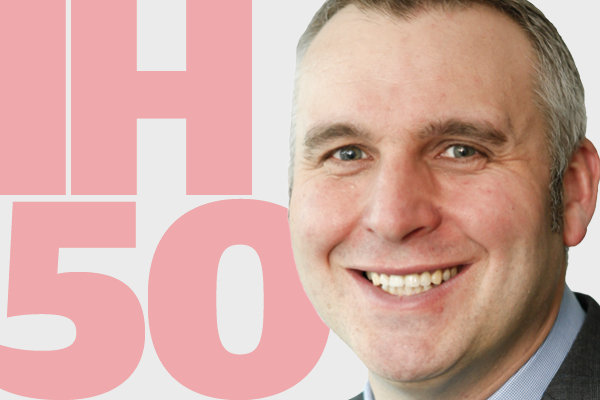You are viewing 1 of your 1 free articles
Resetting the trust dial
With trust in institutions waning, the onus is on social landlords to help rebuild bridges, says John Craggs
In my last blog I talked about the need for business leaders, managers and anyone in a position of authority in the workplace to “treat others how you would wish to be treated yourself”. Not a new or original concept by any means, but hugely important nonetheless.
When we look at what is happening across the UK and the rest of the developed world, and especially consider some of the unexpected election results here, in France and across the pond, one might wonder just what exactly is going on.
I read something recently which I believe points to, or is at least a partial explanation of, how citizens are feeling. It’s an annual survey called the Edelman Trust Barometer which I’ve been following for around four years.
It’s put together by one of the biggest PR agencies in the world and it has been measuring trust in ‘bedrock’ institutions of government, media, business and non-governmental organisations (NGOs), across sample populations in 28 countries, for 17 years now.
The results of the most recent edition of the survey are absolutely staggering. For example, only 45% of the mass population say they trust the bodies in question, across 20 of the 28 countries. And for the years I’ve been following the survey, the trends have worsened.
So, is it any wonder that pollsters around the world who are responsible for predicting the outcome of elections are getting it so wrong? Is it a shock that the pollsters are finding it increasingly difficult to predict such outcomes when so few people trust the ‘powers that be’ and the media who spread their news?
Let me give you some examples.
In answer to the question, “How much do you trust each institution to do what is right?”, the media is distrusted in 82% of countries and this is at an all-time low in 17 countries. In the UK, only 32% of the public trust the media. Phone tapping, biased headlines and scandals such as Hillsborough may go some way to explain this.
“The message is clear: people feel the ‘system’ is failing them and the ‘establishment’ is not doing enough about it.”
Government is distrusted in 75% of countries, with just 36% of people in the UK trusting government. What did Donald Trump do? He rubbished the “system” and the “establishment”, and appealed to those who wanted a different way.
Similarly, in business, trust is declining. In the UK only 45% of people trust businesses. Headlines in the media of putting profit before social purpose, shareholders before people and pounds before the environment have no doubt all played their part.
While I’m at it, there is also an all-time low of trust in chief executive credibility. In answer to the question, “Is the chief executive a credible spokesperson for the company”, the answer was a firm “no” in 23 out of 28 countries, with the trust rating in the UK standing at a paltry 28%.
The message is clear: people feel the ‘system’ is failing them and the ‘establishment’ is not doing enough about it. In fact, one in two countries in the survey have lost faith in the system. The five biggest fears that are fuelling the fire and highlighted in the survey were: corruption, globalisation, erosion of social values, immigration and the pace of innovation. Not great reading.
But if this is the downside, what’s the upside?
Well, 75% of people agree with the proposition: “a company can make specific actions that both increase profits and improve the economic and social conditions in the community where it operates”. Essentially business is expected to lead and there are two main ways a business can do this successfully.
Firstly, it can do no harm. The most selected actions that people believe a company can do to damage trust (and not surprisingly) were things like: paying bribes to officials to win contracts, paying executives hundreds of times more money than workers, moving profits to other countries to avoid tax, overcharging for essential products that people need to live and reducing cost by lowering product quality.
But people believe businesses should in fact be actively doing five other things to re-establish trust and there are no surprises in what the survey highlighted:
- Treat employees well
- Offer high-quality products and services
- Listen to customers
- Pay its fair share of taxes
- Adopt ethical business practices
“75% of people agree with the proposition: ‘a company can make specific actions that both increase profits and improve the economic and social conditions in the community where it operates’.”
This clearly needs to be the direction of travel for our organisations if we aim to be both successful and ethical.
We have been members of Business in the Community for some 10 years and a couple of years ago they established a taskforce which looked at responsible business leadership. The taskforce produced a number of outcomes which it thought businesses should work towards in order to become more responsible, and in my humble opinion, they were absolutely on the mark for what we are advocating at Gentoo, which is to:
- Create a clear short and long-term strategic vision, aligning personal values and business goals
- Demonstrate your values and reward the behaviours you want to encourage in your business
- Identify and communicate total long-term value creation
- Develop responsible business leaders for the future
- Be an advocate for responsible business leadership
The message is clear and consistent. As housing providers, with a huge customer base between us and as employers of thousands of people, it is on us to re-set the trust dial.
John Craggs, chief executive, Gentoo









